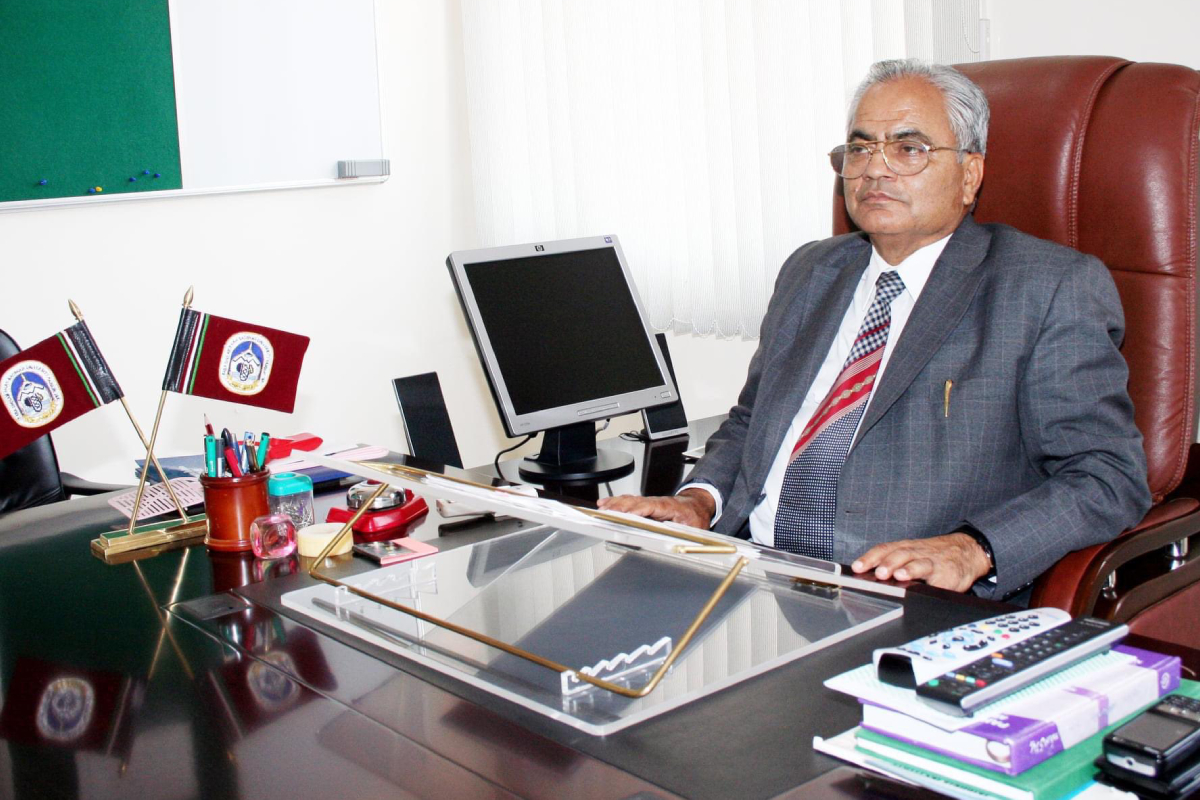Professor Masud Choudhary, who died in Jammu on Friday morning, was an institution, no less so than the impressive university and cultural centre that he established.
More than the credit he deserved for any of these institutional achievements was the respect and affection Choudhary earned, mainly after his retirement from the police. He was an inspiration to two generations of Gujjars, and many others, in the Jammu, Samba, Rajouri, and Poonch regions.
He would surely have swept to victory if he had contested from a Gujjar-dominated constituency in the Jammu division. He may well have got many votes from other ethnic-linguistic communities too, for his efficiency and visionary strengths were well known and respected – and he was inclusive, personally and as head of the University.
Although Choudhary was never formally a politician, he had a keen interest in local, state, national, and international politics, and gender, race and other social issues.
Institution-builder
As the founder and Vice-chancellor of Baba Ghulam Shah Badshah University at Rajouri, Choudhary left no stone unturned to establish an institution of academic excellence on the rugged terrain of that relatively backward part of the erstwhile state. He lived alone on campus for the most part, since his family was in his long-time Jammu home.
He not only established a wide variety of faculties but an inclusive space for students from distant corners of the state. A rationalist, he brought Pandit and other academics, sometimes from foreign lands, to set up the best science and technological faculties he could.
Indeed, he established a finer institution in those early years than another that was built by an alumnus of a top-ranked foreign university in a part of the erstwhile state with a much richer academic tradition – historically.
Having gone to school at a time when not just a Gujjar, even Muslims by and large, rarely had the education to become teachers in the state, Choudhary had experienced encouragement from his teachers and brought the value of good teaching to his role as founder of a university.
Born to the first matriculate of the region in a Gujjar hamlet near the remote Mendhar in 1944, Choudhary’s intellect carried him forward. He topped his school’s matriculation exam at 16, did as well in high school, and was the youngest in his batch of deputy superintendents of police.
Although he put his best efforts into establishing the university in Rajouri, Choudhary’s pet project was one he had already set up on what was then the outskirts of Jammu – the cultural centre, hostels, and school of the Gurjar Desh Charitable Trust.
By constructing buildings with impressive white facades and sweeping staircases there, Choudhary wanted to inspire pride in his fellow Gujjars of the state – much like the stone carvings in the parks of Mayawati laid out in Lucknow and Noida. Having risen to the rank of additional director-general of police in a force dominated by Kashmiris and Dogras, Choudhary knew the derision that Gujjars have long experienced in the state.
Hard hit by illness
In his last years, Choudhary suffered from cancer, a fall, pneumonia, and severe Covid. For a while in August 2020, it had seemed that the pandemic would kill both him and his wife; both were critically ill in the union territory’s top hospital.
His wife, who had been his caring support for many decades, did not survive. Although Choudhary defied the grave then, he was in extremely poor health thereafter.
His gritty spirit was uncrushed, though; he sat through a four-hour function at the release of a book about him at the Trust just four months after he had been critical in hospital.
Choudhary has gone, amid tears, tributes, and police ceremonies, but had reason to be very satisfied. If legal changes in ’92 measurably transformed the collective lives of the state’s Gujjars, Choudhary’s inspiring life and work too played a key part.
David Devadas is a journalist and security, politics and geopolitics analyst.
Disclaimer: Views expressed above are the author’s own

















